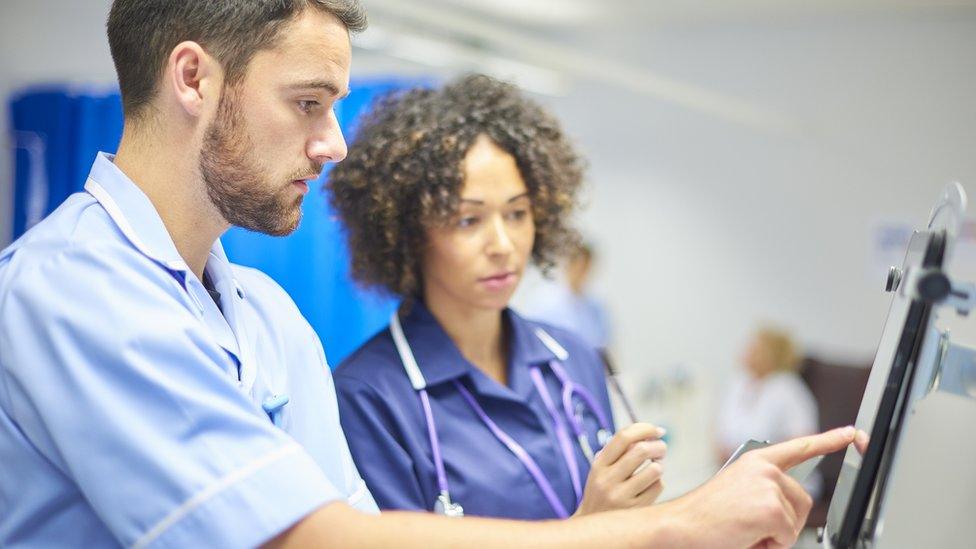BMA chief warns Scotland's GPs are at 'tipping point'
- Published
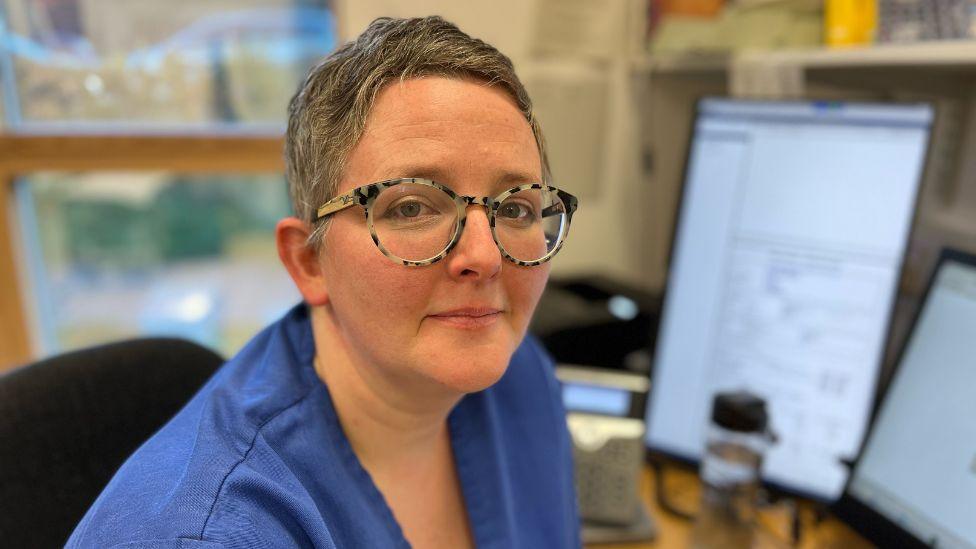
Dr Nora Murray-Cavanagh, of Wester Hailes Medical Practice in Edinburgh, says GPs are as frustrated with the situation as patients
GP surgeries across Scotland are at risk of collapsing because of staff shortages and increased demand, a senior doctor has warned.
Dr Andrew Buist, chairman of the British Medical Association's (BMA) Scottish GP committee, told the BBC many practices were at "tipping point".
More than a third of surveyed surgeries reported at least one GP vacancy – up from just over a quarter last year.
The Scottish government said it was committed to increasing GP numbers.
About half of the GP surgeries in Scotland took part in the BMA survey.
It showed 81% of practices said demand was exceeding capacity - with 42% saying demand substantially exceeded capacity.
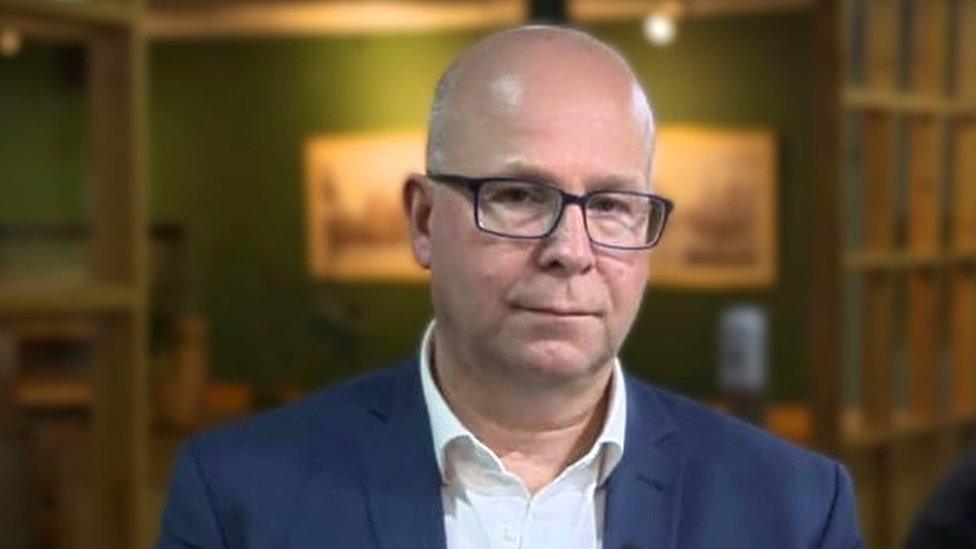
Dr Buist told BBC Scotland: "I worry that we're reaching a tipping point for some practices.
"They lose one or maybe two doctors out of three, and the remaining doctors cannot continue so they return the contract and the practice may cease to exist.
"That is a real concern in some parts of Scotland that that is happening and it's going to happen increasingly as the situation develops over this winter."
According to the BMA, there are currently an estimated 312 whole time equivalent vacancies across GP practices in Scotland.
Wester Hailes Medical Practice in Edinburgh serves one of the most deprived communities in Scotland and there can be as many as 400 calls on a typical Monday at the surgery.
But staff shortages mean patients can be waiting for an hour to get through.
'No longer a first-class health service'
Dr Nora Murray-Cavanagh, clinical lead GP at Wester Hailes Medical Practice, said: "One very good reason you can't see a GP is because there aren't enough GPs.
"We can absolutely understand patient frustration and fear that they and their loved ones are maybe not getting access to the care that they deserve - we agree.
"We cannot work any harder. We are doing everything that we can."
Dr Murray-Cavanagh believes the cost of living crisis will be felt sharply by some of the surgery's patients, some of whom do not have phones to call the surgery or do not have enough credit to stay on hold for up to an hour.
She added: "There needs to be tough conversations and the public really need supported around what their expectations are.
"And an acknowledgement that this is no longer the first-class health service that we've grown up with."
Mary Campbell, left, and Sheila Kane say it's "not acceptable" they can't see a GP
Sheila Kane and Mary Campbell attend a wellbeing group based in the same building as Wester Hailes Medical Practice.
The friends described trying to see a GP in that practice as a "nightmare".
Sheila said: "You're going nearly all year and you can't even talk to a doctor, and you're getting punted off to somebody else.
"I'm sorry, it's just not acceptable because everybody needs to talk to a doctor every now and again. If you can't get that face-to-face talk, you just feel you're getting brushed aside."
'You're too late, he's dead'
Mary faced struggles accessing a number of different healthcare services when her husband was diagnosed with cancer on Hogmanay in 2019.
"He never saw a doctor in this practice in that whole two-and-a-half years," she said.
Her husband recently died and had trouble getting other help from the NHS.
Mary said: "Two days after he died we got a call saying they've got a care package to give him now. I said you're too late, he's dead."
The Scottish government has committed to hiring 800 extra GPs by 2027 and Health Secretary Humza Yousaf said earlier this year he was confident the target would be met.
However, Dr Buist of the BMA is not convinced. He said: "We're halfway through that process. I don't think we're anywhere near that.
"We're not gaining new GPs fast enough and we're losing GPs at the other end of the scale too readily because the job is becoming too unbearable for some GPs."
There has been a dramatic fall in the level of public satisfaction with GP services across Scotland.
The latest survey showed the lowest levels in more than a decade.
A Scottish government spokeswoman said: "To support GPs, we have recruited over 3,220 healthcare professionals into multi-disciplinary teams working alongside GPs.
"We are committed to investing £170m a year to help grow these teams and to further increasing the number of GPs in Scotland."
- Published4 October 2022
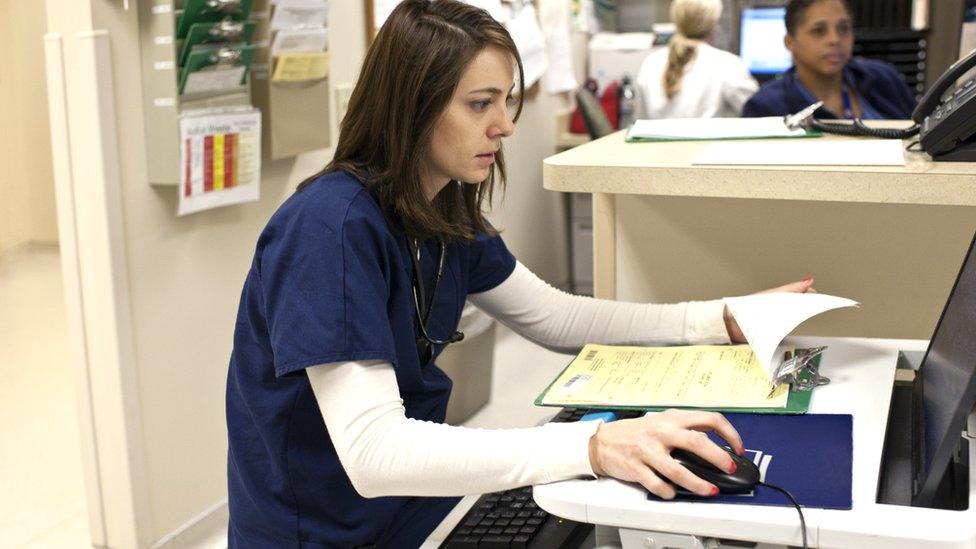
- Published11 May 2022
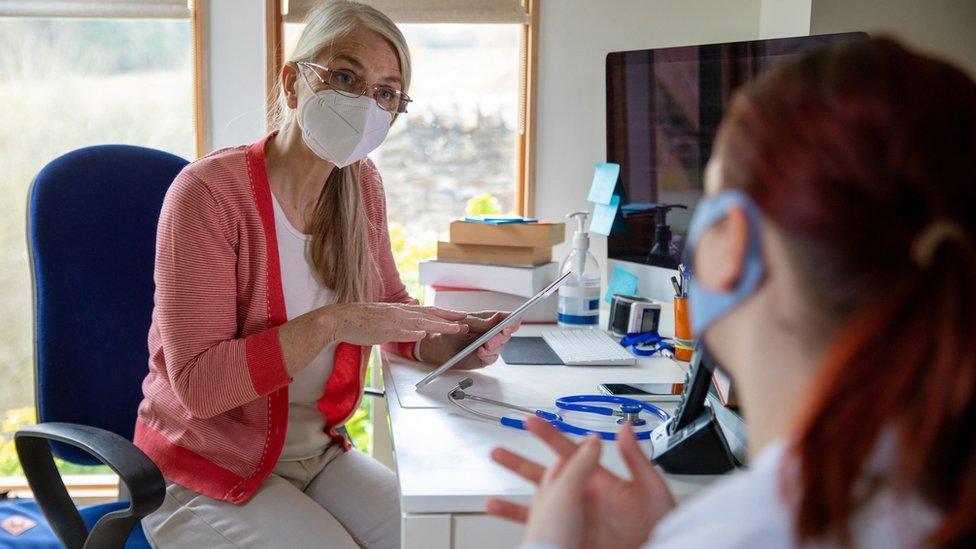
- Published31 October 2022
